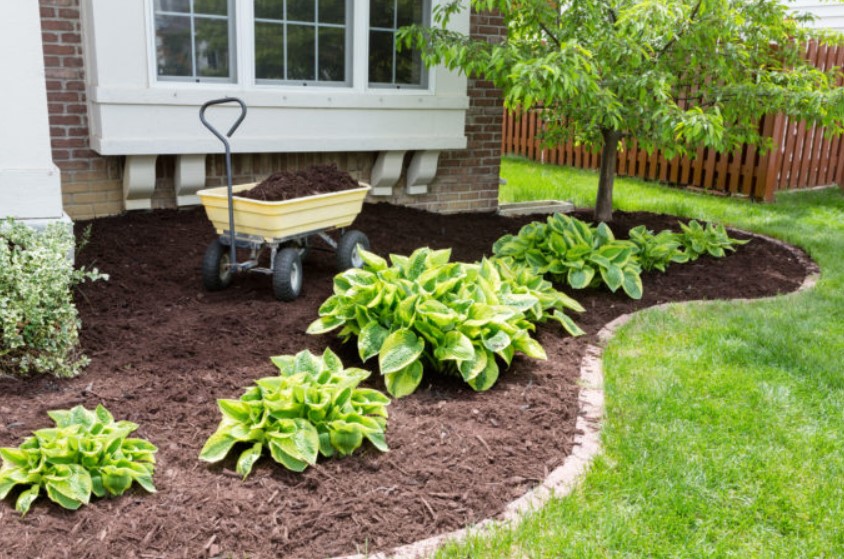
If you are looking to reduce the stress on your plants, mulching your garden will help your plants retain moisture. The benefits of mulching are numerous, including reduced weeds, increased nutrient levels, and decreased need for pesticides and fungicides. Here are five of the essential benefits of mulching your garden. To learn more about the benefits of mulching, read on and visit mulch delivery services Locust Grove GA! Here are the benefits of mulching your garden:
Reduces stress level on plants
Gazing at indoor plants can help us cope with the stress we face from our jobs. According to a study, plants’ physiological and psychological effects on us can significantly reduce stress and fatigue. For example, studies show that gazing at plants can reduce stress and fatigue in office workers. But what happens if we spend more time interacting with plants? What are the benefits of this interaction? Here are some of the benefits. This article aims to provide more information about the benefits of interacting with indoor plants.
Research shows that adding plants to your front garden can help reduce stress and make you happier. The researchers introduced ornamental plants to economically depressed streets in Salford, Greater Manchester, and measured residents’ stress levels. The plants included juniper, azaleas, clematis, daffodil bulbs, petunias, and lavender. The researchers then measured the stress levels of 42 people who lived on the street. One group of residents continued the experiment after a year as the control group.
Increases nutrient levels in the soil
A study published in the Journal of the Ind. Soc. of Soil Science found that mulching increased nutrient levels in the soil. In addition, mulch tended to increase bacterial and fungal counts in the ground, which may increase nutrient availability. This may help explain why mulch is beneficial for plant growth. Here are several examples of mulching’s positive impact on soil health:
In addition to increasing plant nutrients, mulching can improve the quality of the soil. Depending on the climatic conditions and soil characteristics, different mulches have varying effects on soil nutrient content. For example, mulches made of wood chips, straw, green manure, and bark provide more nutrients to the soil than inorganic mulches. Even the water hyacinth plant can improve the microbial population in the soil.
A study conducted by Sinkeviciene et al. in 2010 demonstrated that mulches increased soil nutrient content. The researchers also noted that mulching increased plant nutrient levels, root system size, and cation exchange capacity of the soil. These findings are in line with earlier results. The researchers concluded that mulches enhance plant growth and improve soil nutrient availability.
Reduces weed population
Weeds are not as abundant in organically managed high tunnels as in mulched fields with straw and shredded newspaper. In fact, in some trials, mulches used to suppress weeds were more effective at reducing weeds. However, the decomposition of these materials tended to be accelerated during the growing season, leading to an increase in weeds. Therefore, this study was conducted to determine if newspaper mulches can effectively suppress weeds.
There are many ways to use a mulch to suppress weeds. However, its most significant benefit is the ability to suppress weeds. Organic mulches, in particular, are ideal for controlling weeds because they feed the soil. Over time, organic mulch breaks down to provide nutrients and organic matter. The process also benefits soil worms and microbes, leading to healthier soil. Different types of mulch have different strengths and weaknesses, so be sure to choose the best one for your needs.
Reduces use of fungicides
It has been found that applying fungicides to your soil has a significant effect on the fate of residues. Fungicides can enter your soil via a direct application, drift during spraying, or runoff from sprayed plants. In addition to affecting fungal biomass, fungicide residues decelerate the rate at which S.O.M. decomposes. As a result, soil microbial activity is also reduced.
In a recent study, scientists evaluated the impact of mulching on fungicide residues. Both methods reduced fungicide residues, but the results were non-critical. The fungicides reduced genetic diversity in the soil. This decreased diversity led to a decrease in enzyme activity. As a result, the results of these studies were not predictive of the future microbial community. Fungicides affect soil biogeochemical processes, including organic matter decomposition. Moreover, fungicides may affect filamentous fungi, which are integral members of soil microbial communities. These species are well-known producers of mycotoxins and secondary metabolites.
The study results indicated that raised beds did not improve the incidence of Phytophthora fruit rot, a significant disease in the southeast U.S.A. Several cultural practices were tested from 2005 to 2008 in N.C. and S.C., U.S.A. Raised plastic mulched beds did not improve fruit rot development, and the two fungicides were not significantly different. The most effective fungicides were fluopicolide and mandipropamid. The least effective fungicide was cyazofamid.
